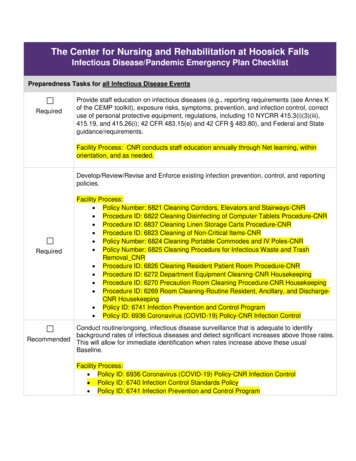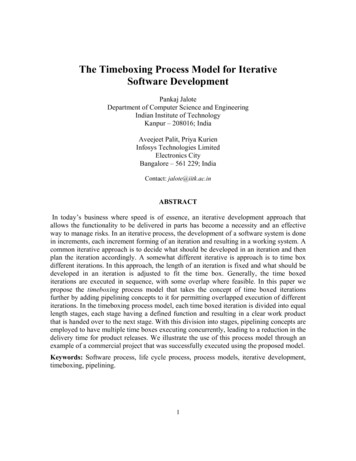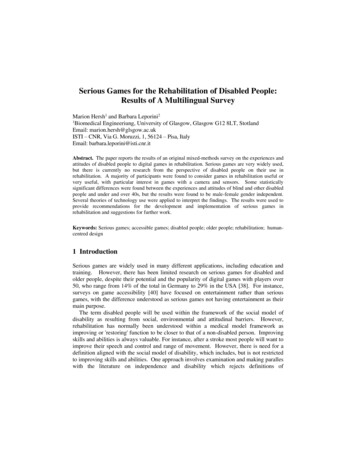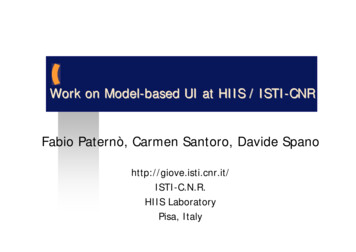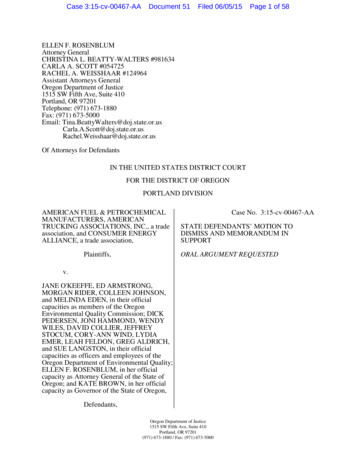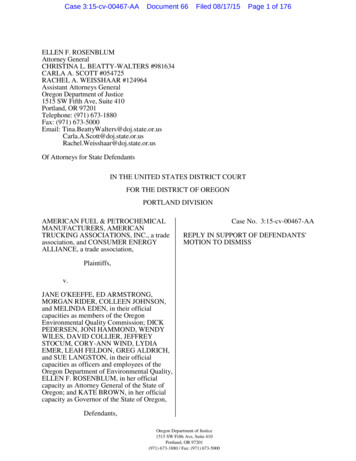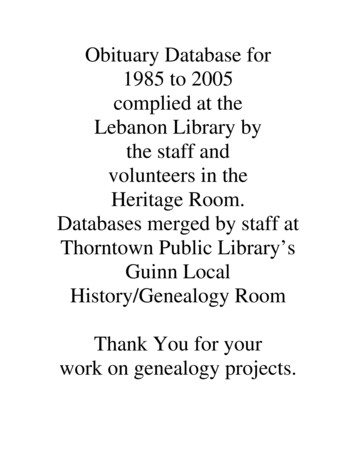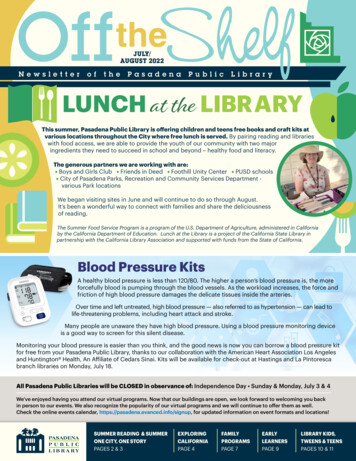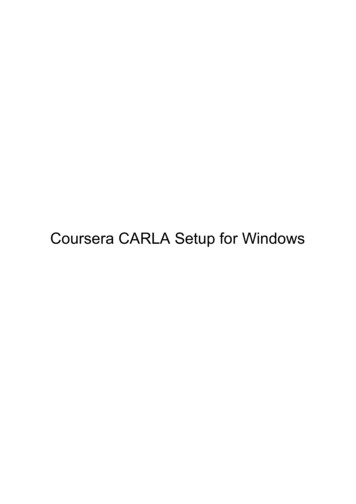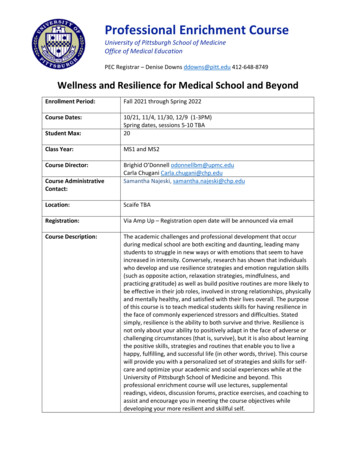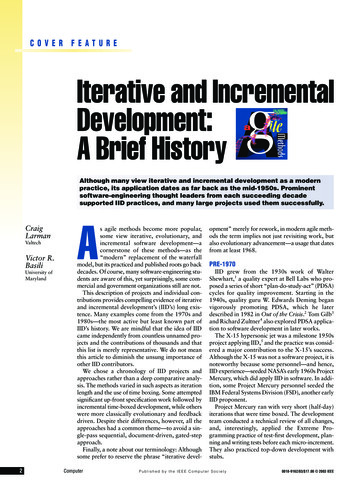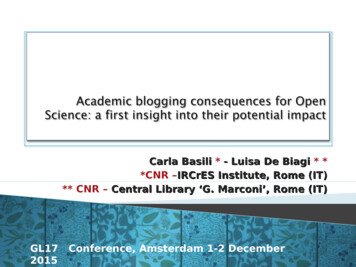
Transcription
Carla Basili * - Luisa De Biagi * **CNR –IRCrES Institute, Rome (IT)** CNR – Central Library ‘G. Marconi’, Rome (IT)GL172015Conference, Amsterdam 1-2 December
Pisa Declaration raises a number of policy issues about nonformal channels of scholarly communication, including“openness”.opennessThe “openness”openness principle permeates the Scientific System inthree main areas: Knowledge dissemination – (Open Access) Knowledge creation - (Open Science) Research impact evaluation – (AltMetrics)Academic Social Media constitute a quickly growing area of(relatively) new channels of Scholarly Communication.Basili - De BiagiGL17Amsterdam ,1-2 December 20152
Social networking Blogging Micro-blogging Collaborative authoring tools for sharing and editingdocuments Social tagging and bookmarking Scheduling and meeting tools Conferencing Image or video sharingBasili - De BiagiGL17Amsterdam , 1-2 December 20153
Basili - De BiagiGL17Amsterdam ,1-2 December 20154
OpenEdition offers the academic community fourinternational-scale publication and information platforms inthe Humanities and Social Sciences.Revues.org – 413 JournalsOpenEdition Books – 2538 booksHypotheses – 1365 academic blogsCalenda -29846 eventsBasili - De BiagiGL17Amsterdam ,1-2 December 20155
Arts & Humanities (517)Education (98)History & Archaeology (552)Library, Information & Communication sciences (145)Multidisciplinary (436)Political Science, Public Admin. & Development (124)Psychology (32)Public Health & Health Care Science (29)Social Work & Social Policy (55)Sociology & Anthropology (363)Language & Linguistics (80)Economics (39)Law (34)Literature (149)Management (21)Psychiatry (7)Basili - De BiagiGL17Amsterdam , 1-2 December 20156
Types of blogsResearch program blogs (301)Publication blogs (40)Research blogs (222)Debate blogs (38)Laboratory blogs (178)Master's blogs (36)Seminar blogs (118)Methodology blogs (31)Thesis blogs (99)Library blogs (25)Monitoring blogs (63)Field work blogs (24)Publication blogs (44)Media blogs (9)Event blogs (44)Non-specialist blogs (42)Bibliography (1)Basili - De BiagiGL17Amsterdam , 1-2 December 20157
Managing the research process:Identifying a researchable topicPlanning a research projectProducing research output collaborativelyReleasing laboratory notebooks to the scholarly communityKeeping up with new developmentsGetting help for solving topical problemsParticipating in open peer reviewingMonitoring one's impactDisseminating research findingsDisseminating research results, ideas and opinions informallyvia blogsBasili - De BiagiGL17Amsterdam , 1-2 December 20158
Two classes of tools and methods:Webometrics – quantitative techniques and tools forcollecting data and calculating “indicators” like usagemetadata (page views and downloads, Twitter counts,Facebook comments, science blog postings, bookmarkingsand reference sharing numbers).Altmetrics - evaluation methods of scholarly activities (notonly publications) based on social media data that serve asalternatives to citation-based metrics.Basili - De BiagiGL17Amsterdam, 1-2 December 20159
Scholarly impact – two different dimensions:Research impact:impact evaluating research performancethrough webmetrics is still in its infancy and still lacks of anestablished framework of evaluation.Scholar reputation:reputation sort of “de facto” assessment (alsoself-assessment) through statistical evidence regarding theimpact, usage, or influence of one’s own work.Based on this distinction, detractors are used to state that“they serve as “technologies of narcissism”,narcissism more than“technologies of control”.controBasili - De BiagiGL17Amsterdam, 1-2 December 201510
Authority and trust - lack of quality filtering mechanismsUnclear benefitsTechnology barriers (e.g. bandwidth)Uncertain moral rights – copyright protectionDifficulties in citing non traditional contentLack of timeLack of familiarity with social networking toolsBasili - De BiagiGL17Amsterdam , 1-2 December 201511
Enablingtechnologiesand financialconstraintsconstitute major drivers for the ongoing move towardsOpen Science, where the “Openness” principle is movingfrom knowledge dissemination (Open Access) to the wholeresearch cycle (Open Science).Collaboration, transparency, globalisation, scientificreputation are the main keywords in this paradigm shift,and scholarly social media, and academic blogs in particular,constitute “de facto” means to achieve these goals.Academic social media can support a new approach in theassessment of the scholar reputation and visibility, not yetin the evaluation of the impact of the research output.outputBasili - De BiagiGL17Amsterdam , 1-2 December 201512
through webmetrics is still in its infancy and still lacks of an established framework of evaluation. Scholar reputation: sort of "de facto" assessment (also self-assessment) through statistical evidence regarding the impact, usage, or influence of one's own work. Based on this distinction, detractors are used to state that
